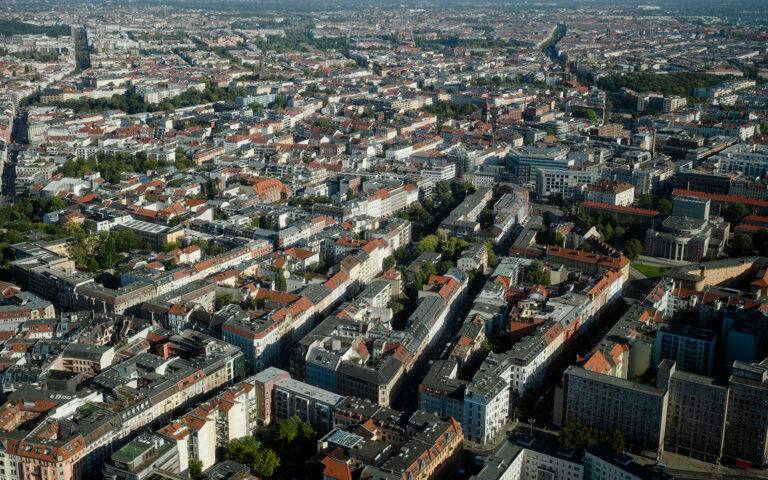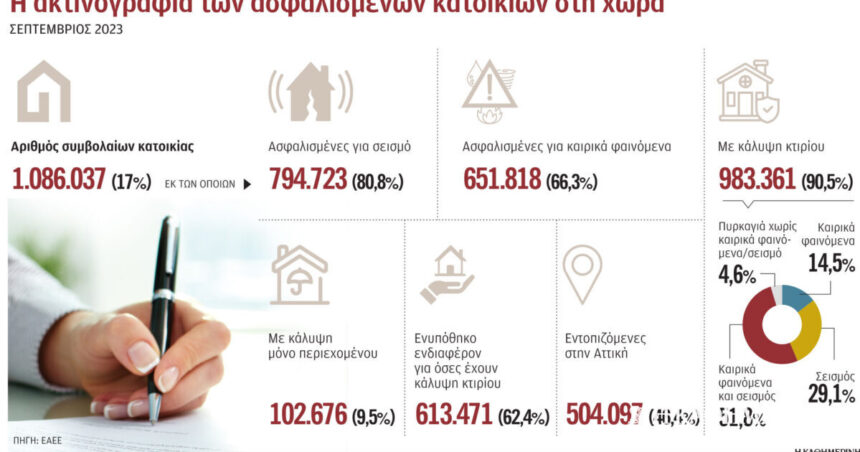Increased interest in insurance against natural disasters from homeowners, its representatives find insurance market in the last period, on the occasion of the favorable arrangement for a 10% discount on LIGHT for those with earthquake, fire or flood cover. According to data from the market, the positive response rate for news home insurance policies reaches 50% – in some cases up to 70% – confirming the increased interest in the conclusion new insurance policies. The increased positive response rate means that while in the past home insurance was purchased by 4 out of 10 interested homeowners among those who expressed an interest or were informed by insurance brokers, this percentage has now increased to 6 or 7 out of 10, showing that the discount by 10% in ENFIA, instituted by the government within 2023, has acted as an incentive.
It is recalled that the benefit of the 10% discount in ENFIA requires a property to have insurance coverage for earthquake, fire or flood. According to the general secretary of the EEA and coordinator of insurance consultants Dimitris Gavalakisbeyond the tax incentive, the increased interest is primarily attributed to “the awareness of the world after the tragic damages left behind by the bad weather “Daniel”“, as it is increasingly recognized that the climate crisis is intensifying extreme weather events, resulting in more frequent and more devastating natural disasters.
The cost of insuring a property e.g. 80 sq.m. built in 2000 reaches close to 145 euros per year.
The data published yesterday by Association of Insurance Companies of Greece (EAEE) show the serious gap that exists in home insurance in the country as the percentage of insurance coverage is limited to 17% of total homes. Based on the relevant data, the insured houses are 1.08 million out of a total of 6.37 million houses recorded by ELSTAT during the 2011 census and 62.4% of the insured buildings are linked to the existence of a mortgage loan.

The highest percentage of insurance in relation to the total number of residences is, as is natural, the Region of Attica, in which of the total of 2,118,743 residences recorded by the ELSTAT 504,097 are insured, i.e. 23.8%. They are followed by the South Aegean Region with an insurance coverage rate of 15% (34,405 insured homes in a total of 229,667), the Ionian Islands with 14.7% (23,559 insured in a total of 160,106), Central Macedonia with 14.6% (156,414 in a total of 1,074,242) , Western Greece with 14.5% (56,515 in a total of 388,791) and Peloponnese with 14.4% (59,007 insured in a total of 410,109 homes), while Thessaly is 7th in the ranking with a percentage of insured homes of 13.5% (53,503 in a total of 395,842 residences).
The average cost for home insurance in our country depending on the company and the amount of exemptions that a policy may contain is between 1.4‰-1.80‰ for constructions after 2000 and increases up to 1.65‰-2 .1‰ for older constructions from 1970 onwards. This price is the premium someone pays to buy 1,000 euros of insured capital. The final cost is calculated based on the reconstruction value for every 1,000 euros of insured value, which based on market prices varies between 1,100 euros and can reach up to 1,400 euros depending on the quality of construction. Thus, the cost of insuring a surface property e.g. 80 sq.m. if it is a construction of 2000, it is formed annually close to 145 euros (calculated with a reconstruction cost of 1,300 euros per sq.m.). Accordingly, for a larger house e.g. 135 sq.m. the insurance cost based on a reconstruction value of 1,400 euros per sq.m. it is 260 euros per year if it is made in 2000 or 310 euros if it is made in 1975.
A key element that someone should pay attention to in their insurance policy is the exemptions, i.e. the limit of damage above which the insurance company intervenes to compensate. Based on the rule, the larger the exemptions provided for in the contract, the cheaper the premium, but market practice is for the exemptions to be small, in the order of 300-500 euros. An exception is the earthquake, which provides for a 2% exemption with a minimum of 700-1,000 euros, depending on the company.








